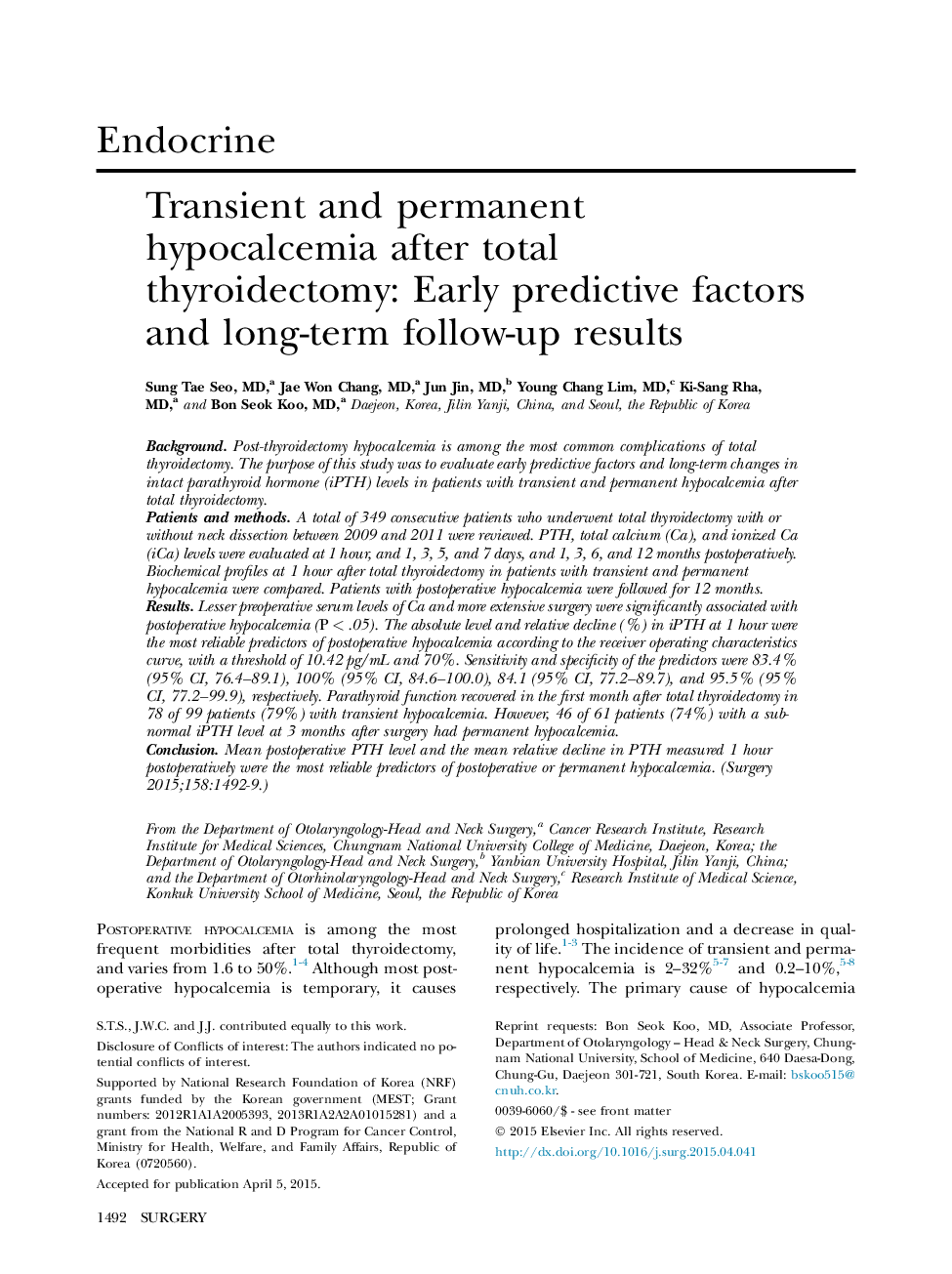| Article ID | Journal | Published Year | Pages | File Type |
|---|---|---|---|---|
| 4306403 | Surgery | 2015 | 8 Pages |
BackgroundPost-thyroidectomy hypocalcemia is among the most common complications of total thyroidectomy. The purpose of this study was to evaluate early predictive factors and long-term changes in intact parathyroid hormone (iPTH) levels in patients with transient and permanent hypocalcemia after total thyroidectomy.Patients and methodsA total of 349 consecutive patients who underwent total thyroidectomy with or without neck dissection between 2009 and 2011 were reviewed. PTH, total calcium (Ca), and ionized Ca (iCa) levels were evaluated at 1 hour, and 1, 3, 5, and 7 days, and 1, 3, 6, and 12 months postoperatively. Biochemical profiles at 1 hour after total thyroidectomy in patients with transient and permanent hypocalcemia were compared. Patients with postoperative hypocalcemia were followed for 12 months.ResultsLesser preoperative serum levels of Ca and more extensive surgery were significantly associated with postoperative hypocalcemia (P < .05). The absolute level and relative decline (%) in iPTH at 1 hour were the most reliable predictors of postoperative hypocalcemia according to the receiver operating characteristics curve, with a threshold of 10.42 pg/mL and 70%. Sensitivity and specificity of the predictors were 83.4% (95% CI, 76.4–89.1), 100% (95% CI, 84.6–100.0), 84.1 (95% CI, 77.2–89.7), and 95.5% (95% CI, 77.2–99.9), respectively. Parathyroid function recovered in the first month after total thyroidectomy in 78 of 99 patients (79%) with transient hypocalcemia. However, 46 of 61 patients (74%) with a subnormal iPTH level at 3 months after surgery had permanent hypocalcemia.ConclusionMean postoperative PTH level and the mean relative decline in PTH measured 1 hour postoperatively were the most reliable predictors of postoperative or permanent hypocalcemia.
